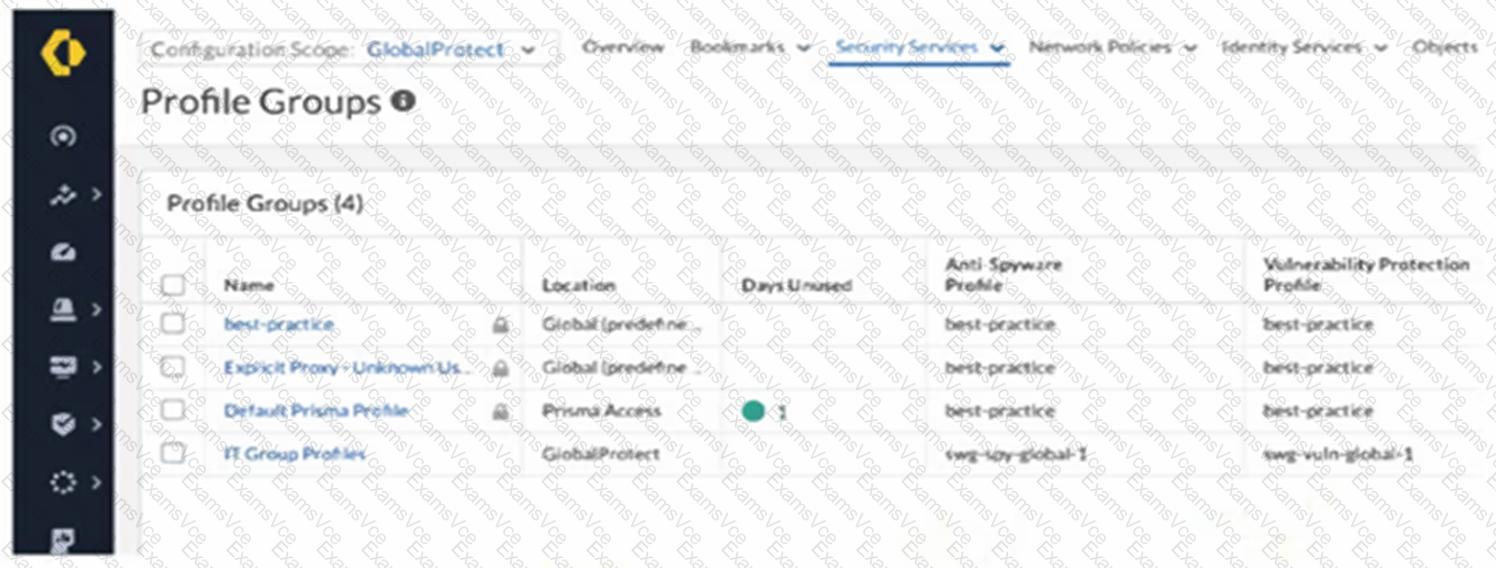Palo Alto Networks best practices and the behavior of Strata Cloud Manager (SCM) dictate thatpredefined or default objects, including profile groups like "Default Prisma Profile," cannot be directly modified.These default objects serve as baseline configurations and are often locked to prevent accidental or unintended changes that could impact the overall security posture.
The intern's experience of the options being greyed out when selecting "Default Prisma Profile" is a direct indication of this immutability of default objects.
Therefore, the correct action is to:
Create a new Profile Group:The intern should create a new profile group within the appropriate configuration scope (likely GlobalProtect, given the task).
Configure the new Profile Group:In this new profile group, the intern can select the desired Anti-Spyware Profile (which might be an existing custom profile or a new one they create).
Modify Security Rules:The security rules currently using the "Default Prisma Profile" in the GlobalProtect folder need to be modified to use this newly created profile group.
Let's analyze why the other options are incorrect based on official documentation:
A. Request edit access for the GlobalProtect scope.While having the correct scope permissions is necessary for makinganychanges within GlobalProtect, it will not override the inherent immutability of default objects like "Default Prisma Profile." Edit access will allow the intern to create new objects and modify rules, but not directly edit the default profile group.
B. Change the configuration scope to Prisma Access and modify the profile group.The image shows that "Default Prisma Profile" has a "Location" of "Prisma Access." However, even within the Prisma Access scope, default profile groups are generally not directly editable. The issue is not the scope but the fact that it's a default object.
D. Modify the existing anti-spyware profile, because best-practice profiles cannot be removed from a group.The question is about changing theprofile group, not the individual Anti-Spyware Profile. While "best-practice" profiles might be part of default groups, the core issue is the inability to modify thedefault groupitself. Creating a new group allows the intern to choose which Anti-Spyware Profile to include.
In summary, the fundamental principle in Palo Alto Networks management is that default objects are typically read-only to ensure a consistent and predictable baseline. To make changes, you need to create custom objects.




